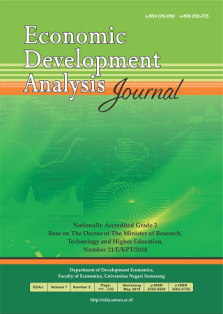Does Rapid Urbanization Drive Deforestation? Evidence From Southeast Asia
Abstract
The issue of rapid deforestation is still ongoing in Southeast Asia. Urbanization boosts demand for land and processed food which can generate environmental degradation. This article intends to present the resuls of an investigation to the nexus between urbanization and deforestation in Southeast Asia from 1996 to 2020 as well as control economic and demographic factors. The data were collected from World Development Indicators and Our World in Data. The Pooled Mean Group (PMG) estimation and Dumitrescu-Hurlin (DH) were applied to examine the short- and long-run effect and the direction of causality variables. The co-integration test has confirmed that the long-run relationship was evident. The results supported the Ecological Modernization Theory (EMT) hypothesis that the relationship between urbanization and deforestation is non-linear, following an inverted U-shape. A turning point occured when the urbanization level reached 64.76%, i.e., the upper-acceleration stage. Rural-urban migration and urban population growth will continue to drive forest loss since Southeast Asia was dominated by low-level urbanization countries. Only Brunei and Malaysia surpassed the threshold of 64.76%. In addition, there is a bidirectional causality relationship between deforestation and urbanization. Strong integration between urban development policies and forest governance is required to reduce the damaging impact of urbanization on forest resources.


